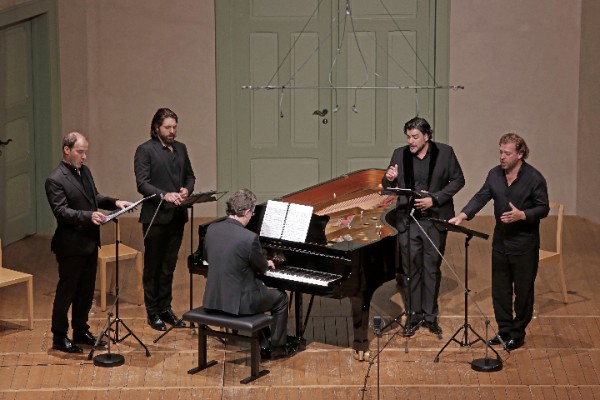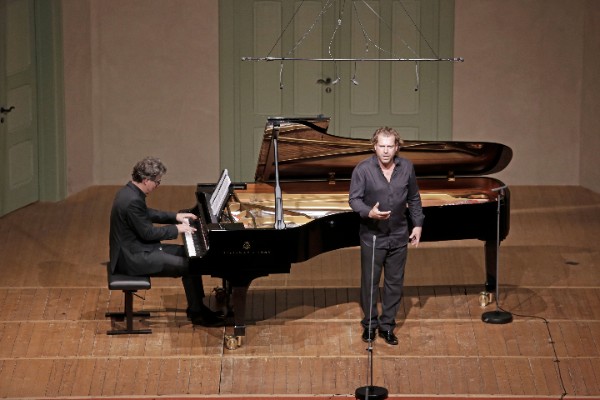On 16 February, the London premiere of Russia Today takes place at King’s Place concert hall. With music by Russian-born composer Eugene Birman, the piece – written during the covid pandemic – features text drawn verbatim from Russians living both inside and outside Russia.
Birman travelled to Russia and the Baltic states to interview local people, asking them three simple questions: ‘What was Russia?’ ‘What is Russia?’ and ‘What will Russia become?’
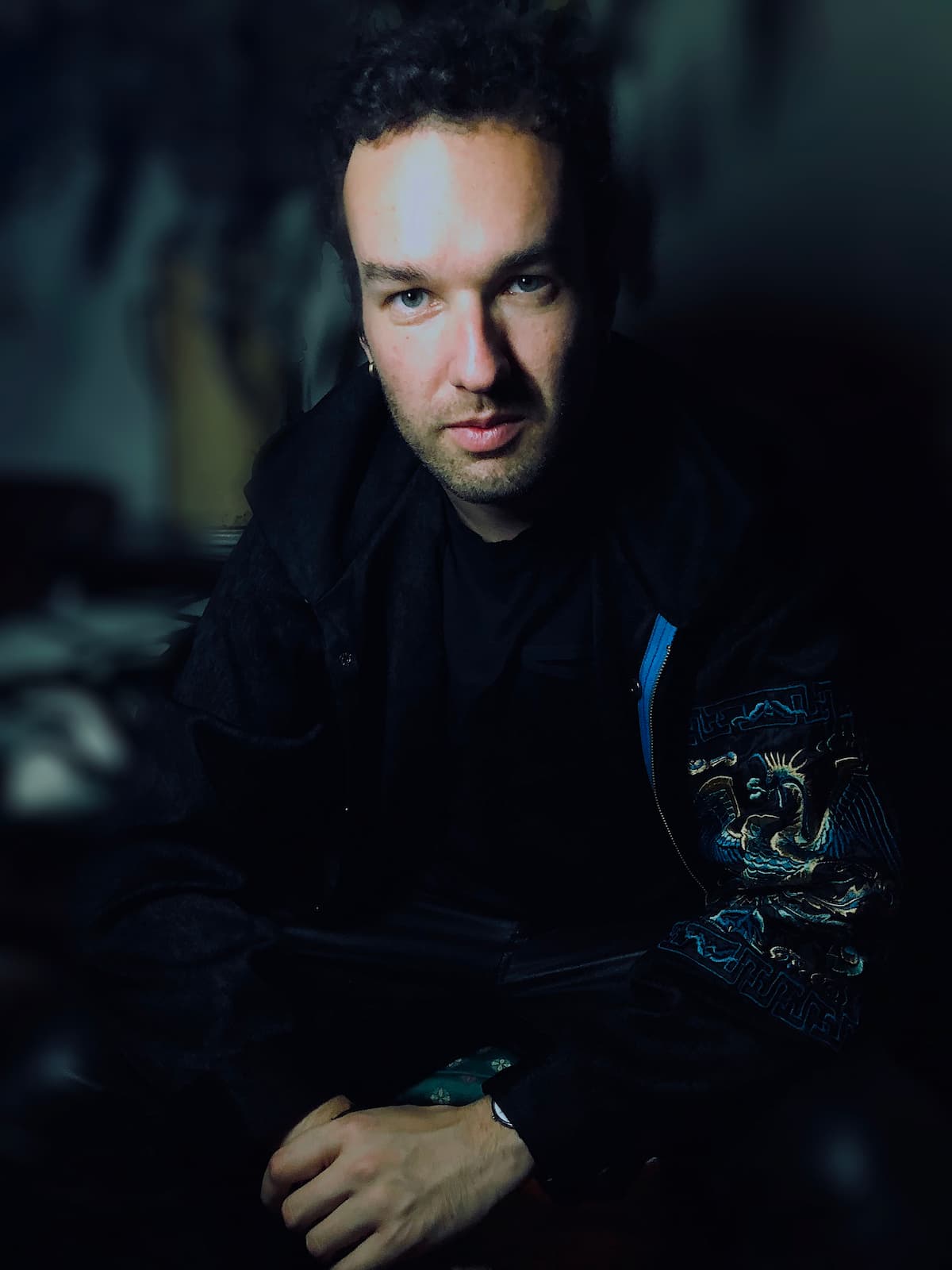
Eugene Birman
Their responses were translated into English so that librettist Scott Diel could forge a narrative structure, then translated back into their original languages. The result is a diverse – and anonymous – set of voices and languages whose words are set to music in the structure of a panikhida, a Russian Orthodox requiem.
According to the project’s website, the piece was ‘conceived in 2018 when Birman spent several months in Russia after 23 years of absence from his country of birth’. The work explores the hopes, heartaches, frustrations, and disillusionment of ordinary Russians who grapple with the identity of a country that many of them no longer understand.
Ahead of Russia Today’s London premiere, I speak to Birman about the views of the people contained within the piece and his own ‘complex sense of identity’ which feeds into the work.
Tell me about the structure of the work itself.
The question of Russia has become unfortunately very central to everybody’s lives at this point – whether or not you have heat is a question of Russia now, in pretty much any country in Europe, that’s the reality.
I had this idea of writing it as a very specific kind of requiem, which is a Russian Orthodox ritual for the dead. It reminded me of this Pussy Riot scandal in 2012 where they performed a concert inside one of the Russian Orthodox churches and it became a scandal because it was seen as sacrilegious, but I thought the reality is that the church in Russia has become indistinguishable from the state.
I felt that the most ‘right’ way to put all this together is to take the skin of this church which has become hollowed out and sort of perverted into something that is no longer religious whatsoever and fill it with the contents of the people of Russia who lament what the country has become and have very little faith about its future.
What is your ‘complex sense of identity’ in relation to Russia Today?
I spent the first six years of my life in Moscow. I started studying music in Moscow, my first language is Russian, it’s the language I speak at home with my parents.
Technically my family’s status was as refugees because of our Jewish background. It was always kind of a problem in the Soviet Union, and also my parents were intellectuals and scientists so there was a sort of double problem.
At the same time, I had a very happy childhood in Moscow – even in the late 80s and early 90s when it was a pretty pitiful time to live there. The whole thing was collapsing, and the quality of life was at the point where the authorities couldn’t really hide the fact that the whole system had completely failed and crumbled.
It was a very interesting time, but also it was a part of my life that’s very much in the background, in history, so I feel connected to it, but I don’t at the same time. Of course, the language and one’s birth and history, and the fact that my passport says, ‘born in Russia’, have followed me for my whole life, for better or worse, and so I have this sort of connection anyway.
Even if you don’t feel as connected to your past anymore, that in itself is still somehow part of the story.
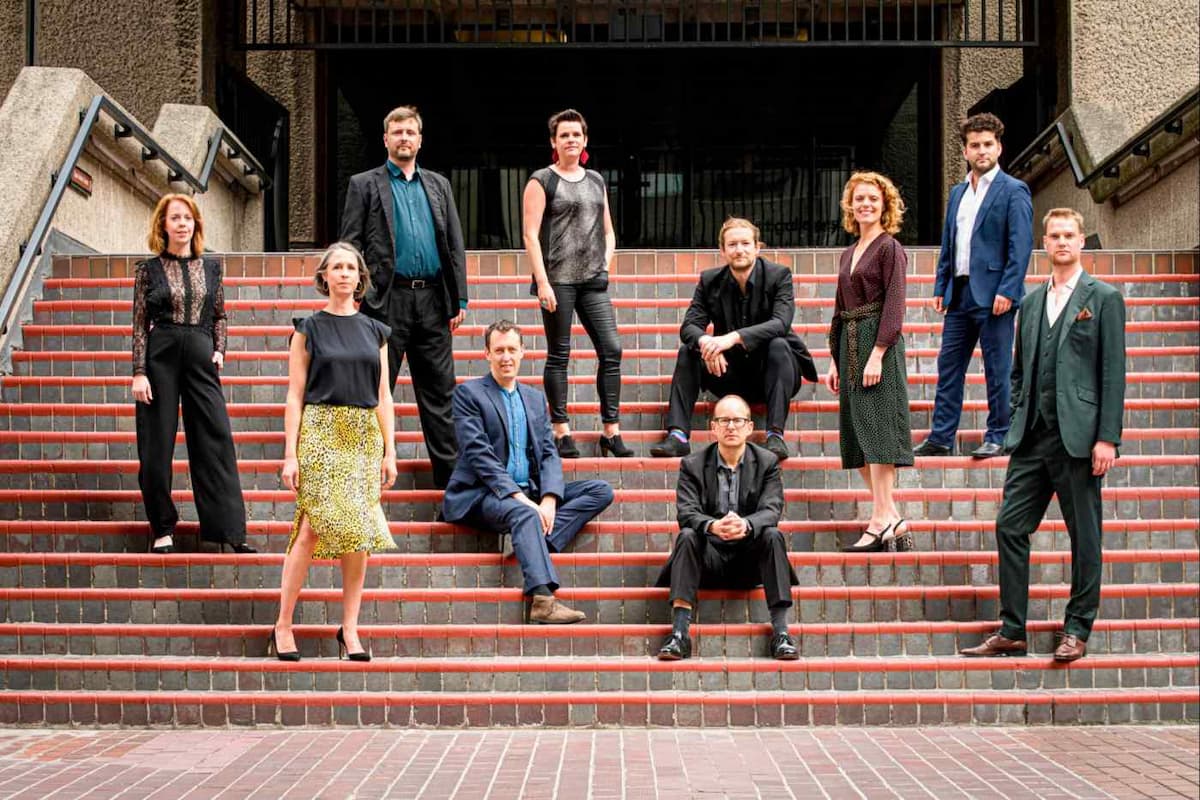
Performers of Russia Today
It becomes a reason to do it. For example, for me, the main questions of Russia Today are my own questions: in asking people what they really believe about their country I really wanted to find that answer myself.
State censorship is heavy in Russia, and dissenting voices are often cracked down upon. How easy was it to get people to speak honestly?
People were very willing to speak, and very open to speak, both within Russia and outside of Russia.
For me, one of the big surprises of this project was that we were allowed to do this in Russia in the first place. Now times have changed completely, so to speak about Russia in the present tense is very different from speaking about Russia even two years ago. But of course, it was all heading that way, and I think that this is partly what this project was about.
In a way, people in Russia, or people having to do with Russia in some way, saw the situation [regarding the invasion of Ukraine] evolving more than the world media picked up on – there were a lot of premonitions about where this was all going.
At the same time, to its credit, in terms of civil society in Russia, it was really very easy to interview people – and there was no censorship in terms of people in Vladivostok, for example, coming in to say what they wanted to say about their country.
In fact, the city and the regional government not only allowed that to happen but promoted it, printing it in the local newspapers and then eventually a year and a half ago allowing us to show the finished piece in commercial movie theatres. Subtitles weren’t allowed, but still, it was a fairly open and civil society in that sense.
Were there any surprises in the responses you received? Did it challenge your expectations of what you thought might be said?
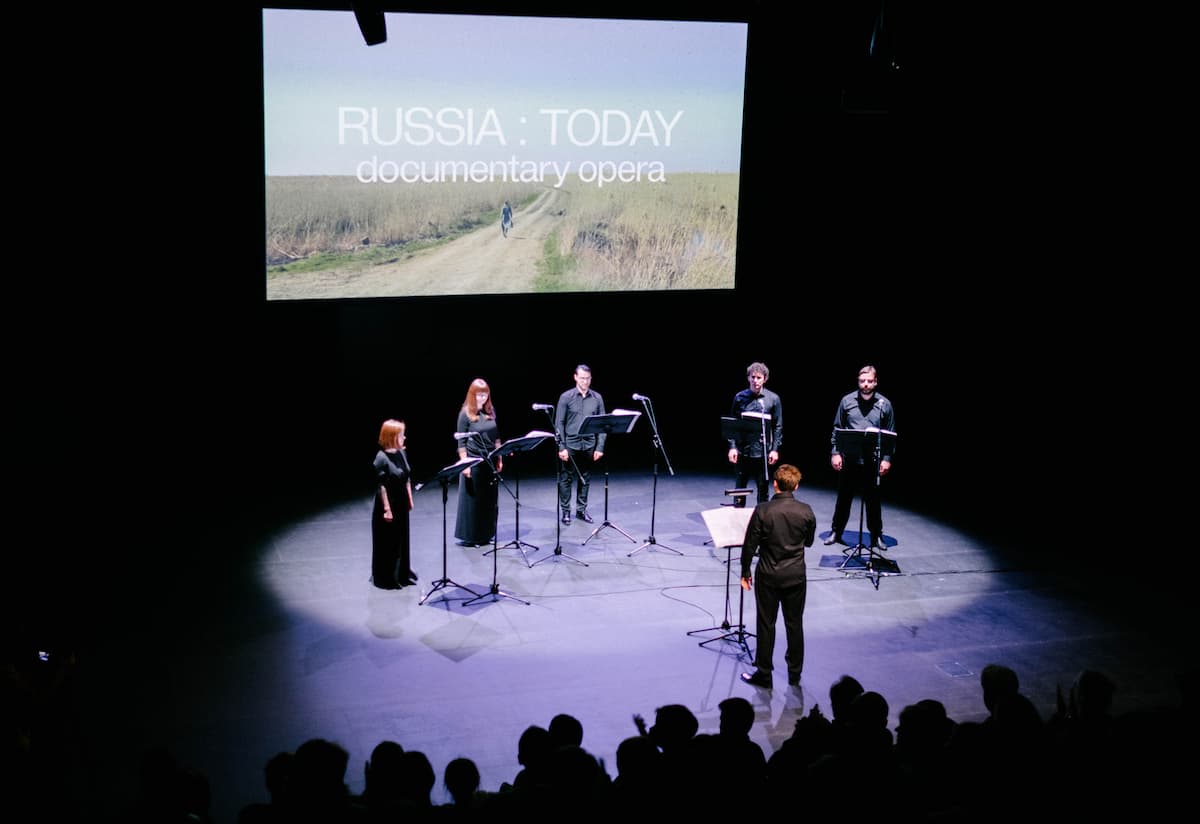
Photos taken from the world premiere of Russia Today © Anastassia Volkova
I think in almost every sense, probably, it challenged me, because for example a lot of the most brilliant and reflective thoughts came from younger people living inside Russia, who really saw their country in a very objective sense.
In a way, they felt like they were just there until they didn’t have to be, or waiting for something to happen so their lives could move on to another phase. And so, I was really surprised by the level of wisdom that people possessed about their country which I think in many Western countries we don’t have to think about, because to a certain extent civil societies kind of work, governments still kind of deliver. We can be cynical about a lot of things, but we don’t get imprisoned – although this is getting harder to say.
A lot of the text of Russia Today is fairly pessimistic. What was the overall balance of sentiments about Russia from your participants?
I was really hoping for a balanced take. I thought maybe half the people would be really proud of Russia and say something about their country that was very positive, but we didn’t get too much of that. When we had the world premiere of the piece in Estonia, on the border of Russia and the EU, it led to some people accusing the whole production of being fabricated, that the text wasn’t real, and that Russian people would never say this about their country.
One hopes, going into something like this, that you ask people what they believe for the future, and they believe that the future will be better, but that was really not the case inside Russia.
How does it feel to see this piece in the context of Russia’s invasion of Ukraine?
And at that point, of course, the idea of this Ukrainian invasion didn’t feel remotely realistic, even to most people in Ukraine. And so to see the piece now, especially considering the text and what the people in Russia said themselves, I think it sort of does speak for itself.
Russia has committed suicide, or something like that, on the world stage, which is incredibly sad because it has an incredibly rich culture and history.
I think many of the words inside this piece speak of so many wasted opportunities to capitalise on the ingenuity of people, on their spirituality, on their endurance, the persistence to survive: all these things which are very beautiful parts of the Russian spirit and are captured in Russia’s music and films and books.
Instead, what Russia has given the world is murder and environmental degradation, and corruption on every level.
In that way, I think, the music is almost immaterial because the message is exactly what the situation is. Having said that, the whole point of this panikhida, this Russian Orthodox requiem, is that it’s a cathartic rite, it’s about purification: that death is not simply a death, it’s a purification.
And I think there’s something that in some way resonates with the current situation: that not until … the whole thing is buried and in ashes is there any chance for any kind of future to even be remotely possible, and I think we see and feel that.
Are you hopeful for the future?
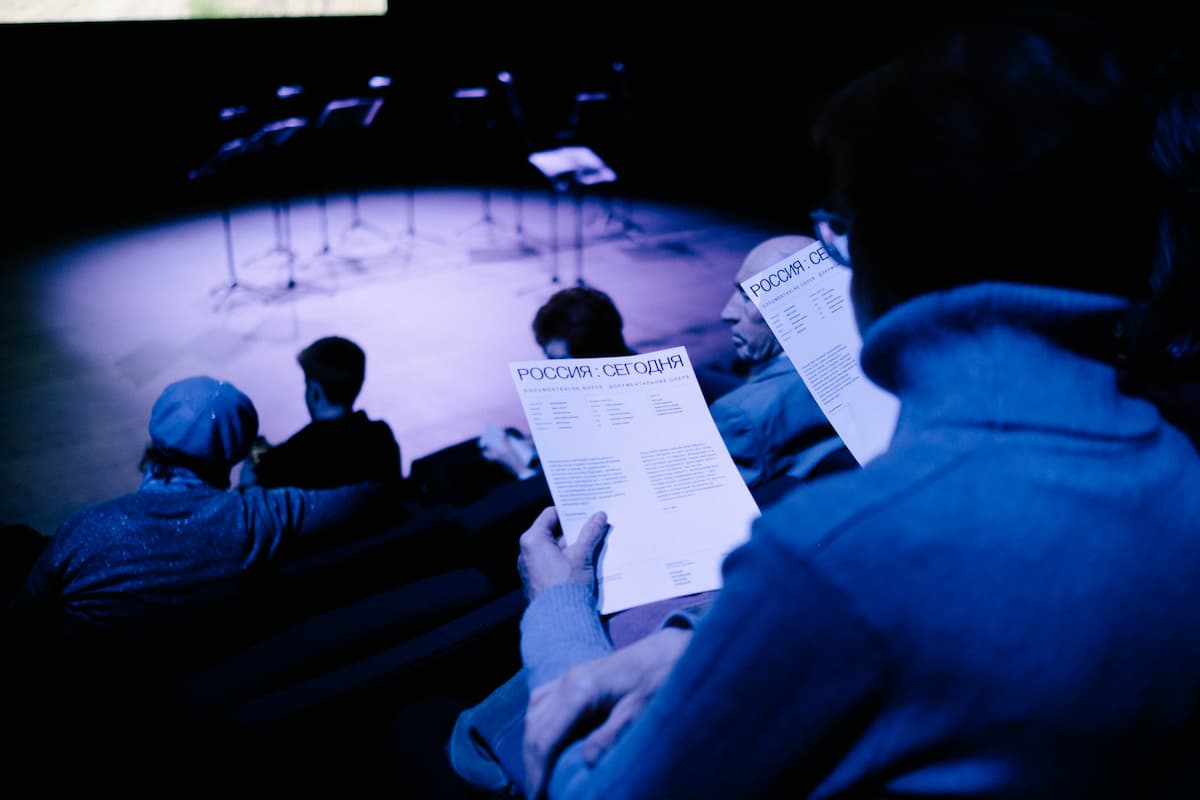
Photos taken from the world premiere of Russia Today © Anastassia Volkova
I have no idea. There was a lot of interest to do the piece in Moscow until 2022. I spoke with many festivals through the project’s executive producer, and venues were interested. Our stage director is Russian, our director of photography is Russian, and so I was hoping to do it in Moscow, and it would have been possible which I think would’ve said something.
For me that would’ve been a positive statement to say ‘Yes, this is a very sad work, but we can put it on in Moscow,’ and people could come and see it. But of course, what makes me pessimistic is that I don’t think it’ll be done in Moscow for a very long time.
In fact, the people involved mostly had to leave the country because their involvement with the project causes a lot of personal risk to them. For a while we anonymised them – I took their names out of the project’s website until they could leave the country.
But the question is: who is left in Russia? What do they see? What do they watch? And the reality is that propaganda is believed by many people, and the education system continues that. So I would like to say that some aspect of the goodness and the objectivity of the culture lives on through this piece, but I think it’s even a stretch to say that.
The final movement of this panikhida structure is called ‘Eternal Memory’, and I think it was the choice of the librettist to put this conversation between a mother and her child there, which shows that actually, memory in Russia is completely not eternal: it’s warped and a product of propaganda, and that this is actually the future of the country.
Tickets for the performance can be found here.
For more of the best in classical music, sign up to our E-Newsletter
Russia Today (Trailer)

